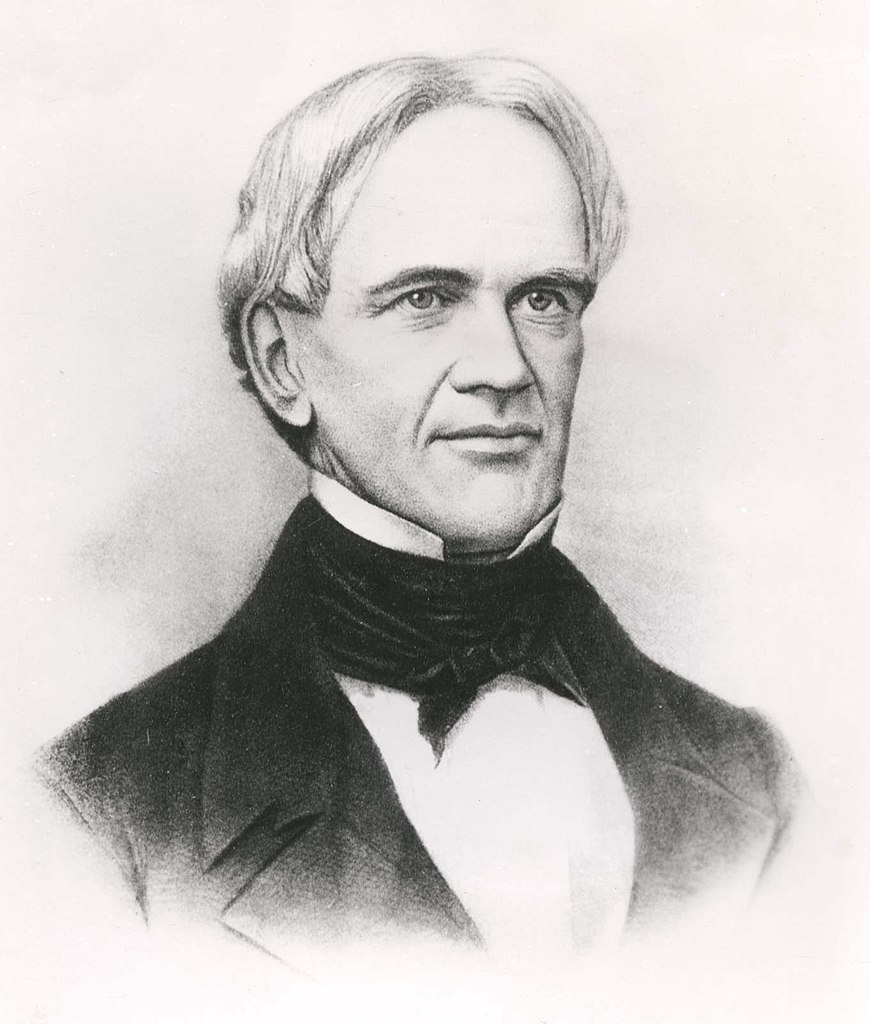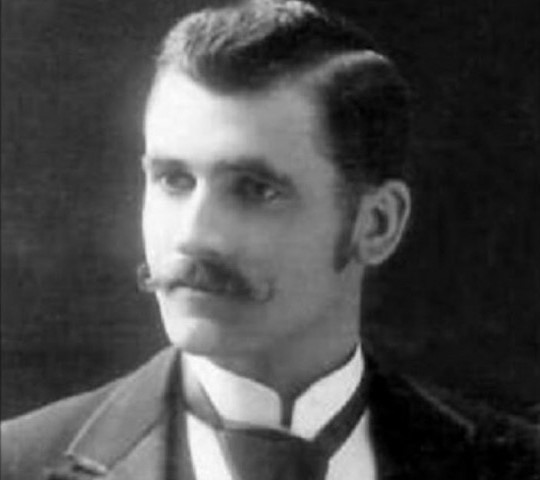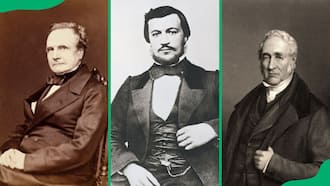History Cooperative

The Homework Dilemma: Who Invented Homework?
The inventor of homework may be unknown, but its evolution reflects contributions from educators, philosophers, and students. Homework reinforces learning, fosters discipline, and prepares students for the future, spanning from ancient civilizations to modern education. Ongoing debates probe its balance, efficacy, equity, and accessibility, prompting innovative alternatives like project-based and personalized learning. As education evolves, the enigma of homework endures.
Table of Contents
Who Invented Homework?
While historical records don’t provide a definitive answer regarding the inventor of homework in the modern sense, two prominent figures, Roberto Nevelis of Venice and Horace Mann, are often linked to the concept’s early development.
Roberto Nevelis of Venice: A Mythical Innovator?
Roberto Nevelis, a Venetian educator from the 16th century, is frequently credited with the invention of homework. The story goes that Nevelis assigned tasks to his students outside regular classroom hours to reinforce their learning—a practice that aligns with the essence of homework. However, the historical evidence supporting Nevelis as the inventor of homework is rather elusive, leaving room for skepticism.
While Nevelis’s role remains somewhat mythical, his association with homework highlights the early recognition of the concept’s educational value.
Horace Mann: Shaping the American Educational Landscape
Horace Mann, often regarded as the “Father of American Education,” made significant contributions to the American public school system in the 19th century. Though he may not have single-handedly invented homework, his educational reforms played a crucial role in its widespread adoption.
Mann’s vision for education emphasized discipline and rigor, which included assigning tasks to be completed outside of the classroom. While he did not create homework in the traditional sense, his influence on the American education system paved the way for its integration.
The invention of homework was driven by several educational objectives. It aimed to reinforce classroom learning, ensuring knowledge retention and skill development. Homework also served as a means to promote self-discipline and responsibility among students, fostering valuable study habits and time management skills.
Why Was Homework Invented?
The invention of homework was not a random educational practice but rather a deliberate strategy with several essential objectives in mind.
Reinforcing Classroom Learning
Foremost among these objectives was the need to reinforce classroom learning. When students leave the classroom, the goal is for them to retain and apply the knowledge they have acquired during their lessons. Homework emerged as a powerful tool for achieving this goal. It provided students with a structured platform to revisit the day’s lessons, practice what they had learned, and solidify their understanding.
Homework assignments often mirrored classroom activities, allowing students to extend their learning beyond the confines of school hours. Through the repetition of exercises and tasks related to the curriculum, students could deepen their comprehension and mastery of various subjects.
Fostering Self-Discipline and Responsibility
Another significant objective behind the creation of homework was the promotion of self-discipline and responsibility among students. Education has always been about more than just the acquisition of knowledge; it also involves the development of life skills and habits that prepare individuals for future challenges.
By assigning tasks to be completed independently at home, educators aimed to instill valuable study habits and time management skills. Students were expected to take ownership of their learning, manage their time effectively, and meet deadlines—a set of skills that have enduring relevance in contemporary education and beyond.
Homework encouraged students to become proactive in their educational journey. It taught them the importance of accountability and the satisfaction of completing tasks on their own. These life skills would prove invaluable in their future endeavors, both academically and in the broader context of their lives.
When Was Homework Invented?
The roots of homework stretch deep into the annals of history, tracing its origins to ancient civilizations and early educational practices. While it has undergone significant evolution over the centuries, the concept of extending learning beyond the classroom has always been an integral part of education.
Earliest Origins of Homework and Early Educational Practices
The idea of homework, in its most rudimentary form, can be traced back to the earliest human civilizations. In ancient Egypt , for instance, students were tasked with hieroglyphic writing exercises. These exercises served as a precursor to modern homework, as they required students to practice and reinforce their understanding of written language—an essential skill for communication and record-keeping in that era.
In ancient Greece , luminaries like Plato and Aristotle advocated for the use of written exercises as a tool for intellectual development. They recognized the value of practice in enhancing one’s knowledge and skills, laying the foundation for a more systematic approach to homework.
The ancient Romans also played a pivotal role in the early development of homework. Young Roman students were expected to complete assignments at home, with a particular focus on subjects like mathematics and literature. These assignments were designed to consolidate their classroom learning, emphasizing the importance of practice in mastering various disciplines.
READ MORE: Who Invented Math? The History of Mathematics
The practice of assigning work to be done outside of regular school hours continued to evolve through various historical periods. As societies advanced, so did the complexity and diversity of homework tasks, reflecting the changing needs and priorities of education.
The Influence of Educational Philosophers
While the roots of homework extend to ancient times, the ideas of renowned educational philosophers in later centuries further contributed to its development. John Locke, an influential thinker of the Enlightenment era, believed in a gradual and cumulative approach to learning. He emphasized the importance of students revisiting topics through repetition and practice, a concept that aligns with the principles of homework.
Jean-Jacques Rousseau, another prominent philosopher, stressed the significance of self-directed learning. Rousseau’s ideas encouraged the development of independent study habits and a personalized approach to education—a philosophy that resonates with modern concepts of homework.
Homework in the American Public School System
The American public school system has played a pivotal role in the widespread adoption and popularization of homework. To understand the significance of homework in modern education, it’s essential to delve into its history and evolution within the United States.
History and Evolution of Homework in the United States
The late 19th century marked a significant turning point for homework in the United States. During this period, influenced by educational reforms and the growing need for standardized curricula, homework assignments began to gain prominence in American schools.
Educational reformers and policymakers recognized the value of homework as a tool for reinforcing classroom learning. They believed that assigning tasks for students to complete outside of regular school hours would help ensure that knowledge was retained and skills were honed. This approach aligned with the broader trends in education at the time, which aimed to provide a more structured and systematic approach to learning.
As the American public school system continued to evolve, homework assignments became a common practice in classrooms across the nation. The standardization of curricula and the formalization of education contributed to the integration of homework into the learning process. This marked a significant departure from earlier educational practices, reflecting a shift toward more structured and comprehensive learning experiences.
The incorporation of homework into the American education system not only reinforced classroom learning but also fostered self-discipline and responsibility among students. It encouraged them to take ownership of their educational journey and develop valuable study habits and time management skills—a legacy that continues to influence modern pedagogy.
Controversies Around Homework
Despite its longstanding presence in education, homework has not been immune to controversy and debate. While many view it as a valuable educational tool, others question its effectiveness and impact on students’ well-being.
The Homework Debate
One of the central controversies revolves around the amount of homework assigned to students. Critics argue that excessive homework loads can lead to stress, sleep deprivation, and a lack of free time for students. The debate often centers on striking the right balance between homework and other aspects of a student’s life, including extracurricular activities, family time, and rest.
Homework’s Efficacy
Another contentious issue pertains to the efficacy of homework in enhancing learning outcomes. Some studies suggest that moderate amounts of homework can reinforce classroom learning and improve academic performance. However, others question whether all homework assignments contribute equally to learning or whether some may be more beneficial than others. The effectiveness of homework can vary depending on factors such as the student’s grade level, the subject matter, and the quality of the assignment.
Equity and Accessibility
Homework can also raise concerns related to equity and accessibility. Students from disadvantaged backgrounds may have limited access to resources and support at home, potentially putting them at a disadvantage when it comes to completing homework assignments. This disparity has prompted discussions about the role of homework in perpetuating educational inequalities and how schools can address these disparities.
Alternative Approaches to Learning
In response to the controversies surrounding homework, educators and researchers have explored alternative approaches to learning. These approaches aim to strike a balance between reinforcing classroom learning and promoting holistic student well-being. Some alternatives include:
Project-Based Learning
Project-based learning emphasizes hands-on, collaborative projects that allow students to apply their knowledge to real-world problems. This approach shifts the focus from traditional homework assignments to engaging, practical learning experiences.
Flipped Classrooms
Flipped classrooms reverse the traditional teaching model. Students learn new material at home through video lectures or readings and then use class time for interactive discussions and activities. This approach reduces the need for traditional homework while promoting active learning.
Personalized Learning
Personalized learning tailors instruction to individual students’ needs, allowing them to progress at their own pace. This approach minimizes the need for one-size-fits-all homework assignments and instead focuses on targeted learning experiences.
The Ongoing Conversation
The controversies surrounding homework highlight the need for an ongoing conversation about its role in education. Striking the right balance between reinforcing learning and addressing students’ well-being remains a complex challenge. As educators, parents, and researchers continue to explore innovative approaches to learning, the role of homework in the modern educational landscape continues to evolve. Ultimately, the goal is to provide students with the most effective and equitable learning experiences possible.
Unpacking the Homework Enigma
Homework, without a single inventor, has evolved through educators, philosophers, and students. It reinforces learning, fosters discipline and prepares students. From ancient times to modern education, it upholds timeless values. Yet, controversies arise—debates on balance, efficacy, equity, and accessibility persist. Innovative alternatives like project-based and personalized learning emerge. Homework’s role evolves with education.
How to Cite this Article
There are three different ways you can cite this article.
1. To cite this article in an academic-style article or paper , use:
<a href=" https://historycooperative.org/who-invented-homework/ ">The Homework Dilemma: Who Invented Homework?</a>
Leave a Comment Cancel reply
Who Invented Homework, and Why Was Homework Invented? Let’s Explore!
If you are or have ever been a student, you have probably asked this question multiple times, and it hardly was to thank the person who invented homework personally. We all know that feeling all too well—the deadline is looming, you’re staring at a blank page, and there isn’t a single viable idea in your head.
Sounds familiar? Then you’re likely curious to investigate the history of homework and the cruel, cruel people who stand behind this centuries-old tradition. It’s quite fascinating, actually, and you will most certainly be surprised at how long and turbulent the history of giving learners homework is.
When, How, Why, and Who Invented Homework
To answer the question of who the title of the inventor of homework belongs to, we will have to go all the way back to the first century, then jump to eighteenth-century Europe, and finally move domestically to explore the trials and errors of the homework tradition in the U.S.
Some of the names we will address here include:
- Pliny the Younger —The Roman lawyer and author credited with the “invention” of homework,
- Johann Gottlieb Fichte —The German philosopher who developed the ideological justification of homework,
- Horace Mann —The first known American educator who made homework the norm in the U.S., and more.
Let’s dive in.
Who Created Homework and Why—How Everything Started
So, who started homework? The simplistic answer would be the Roman lawyer Pliny the Younger, who we’ll discuss in more detail below. However, it’s not that simple. It never is when it comes to homework, a tradition that could have existed long before it was linked to any historical artifacts and, therefore, lost to history.
After all, as much as almost every student despises homework, its number one purpose (or, at least, what we perceive as its number one purpose today) is self-evident. Most teachers genuinely care about their learners’ progress and academic achievements, so it’s no wonder they give home assignments to help students improve their learning.
As a result, it’s no wonder students are looking for an EssayPro review or WritePapers review to find someone reputable who can help them cope with loads of homework.
However, as you will soon find out, making progress in learning is only one of the many homework goals. Historically, it hasn’t even always been the most important one. Societal events, dominant philosophical schools, and individual educational reformers have always affected the mainstream view of homework and its perceived functions.
We invite you to join us on a journey through centuries (and then back again), where we will try to understand the origins, evolution, and current state of the homework tradition. If nothing else, you might have a chance to impress your friends at a trivia night.
Pliny the Younger
Have you already thought of the Roman Empire this week? If not, now’s your chance. The first name historians come across when looking for the origins of homework is Pliny the Younger, a Roman magistrate, lawyer, and brilliant orator in the first century A.D.
Pliny the Younger had students like many other distinguished authors and public speakers in Rome. He taught rhetoric and public speaking and—you guessed it—tasked his students with practicing their speech composing and public speaking skills even outside his classes. Also, Pliny actively encouraged them to put their newly acquired skills to practice in appropriate settings.
Johann Gottlieb Fichte
Here comes a huge time jump—to eighteenth-century Germany. Sure, homework probably existed between the Roman times and the eighteenth century. However, nothing groundbreaking happened to it during all those centuries, so there’s no point in retelling every little step.
Johann Gottlieb Fichte was a German philosopher in post-Napoleon Europe who advocated for a uniform national education system, similar to other voices of German idealism. He emphasized that teaching the youth was as much about instilling a sense of national identity in them as teaching them traditional disciplines. For Fichte, homework was one of the strategies for achieving that.
Horace Mann
At this point, you might wonder, “What about the U.S.?” Well, the title of the pioneer of homework in the New World belongs to Horace Mann, otherwise known as “the father of the American public school system.” In the nineteenth century, education for children was still not compulsory, and Mann advocated for changing that.
Mann was the first educator to emphasize the role of parents in every child’s learning journey. He believed homework could reinforce the lessons taught in school, teach the youth self-discipline and improve their relationships with parents. He added a new layer to why homework was invented and made mainstream.
Roberto Nevilis: What Was His Role in the Origins of Homework?
The first thing you need to know about Roberto Nevilis is that he didn’t exist. A popular myth suggests that Nevilis invented homework at the beginning of the twentieth century as a form of punishment for students who didn’t work hard enough in class. That’s completely untrue.
Here are a few facts about Roberto Nevilis. According to the legend, Roberto Nevilis was an Italian teacher who lived at the end of the nineteenth and beginning of the twentieth century in Venice, Italy. He was supposedly the first educator to give homework to his students, which allegedly happened in 1905. If you look up his (more or less fictional) “story” online, you will find that he initially only gave home assignments to students who failed to understand the material in class or weren’t diligent enough.
Why did Roberto Nevilis create homework? As you can probably guess by now, the more accurate question would be, “Why would someone bother to invent the person named Roberto Nevilis and credit this semi-fictional character with inventing homework?” Sadly, though, there’s no clear answer. Whoever did this wanted students or the general public to believe that the number one purpose of homework was punishment for poor performance. That’s not the case.
Was the History of Homework in the United States Any Different?
Now, let’s move beyond Horace Mann’s name and explore homework history in the Americas or, more specifically, the U.S. One of the first questions people curious about the topic ask is, “What year was homework invented in the United States?” There’s no straightforward answer to this, either. All we know is that homework started becoming a standard practice somewhere on the cusp of the nineteenth and twentieth centuries—largely thanks to Mann’s effort.
The U.S. wasn’t any different from other countries in that the mainstream views on homework evolved with societal norms (which, in turn, shaped educational priorities). For example, by the beginning of the twentieth century, the idea became more or less universal: homework promoted students’ growth beyond learning the material taught in class. Educators believed it was also helpful for building character and applying the knowledge gained in practical contexts.
However, the beginning of the twentieth century was also when the progressive education movement grew increasingly popular. Among other things, its proponents advocated against homework because they believed that it contracted the fundamentals of child-centered learning. The opposing views on giving home assignments coexisted side by side; to an extent, they still do.
The Ban on Homework in the 1900s
The 1900s was the first time in American history since homework origin when it became very popular to reject the need for homework. The progressive movement grew more influential by the day, eventually culminating in the homework ban.
From being the underdogs of sorts, homework’s progressive critics turned into the loudest voice in the education system, and their demands were eventually met, albeit not everywhere.
Their arguments were straightforward and understandable, at least to an extent. They claimed that homework got in the way of students’ socializing after school hours, interfered with the family dynamics, and strained students’ physical and mental health.
The Need for Children’s Domestic Labor in the 1930s
The 1930s wasn’t a good time for the first homework advocates. This was when the Great Depression hit the U.S. severely and put the economic crisis at the forefront of basically everything happening in the country, including education.
More and more parents came forward demanding the end of homework because they needed their children to help at home—be it with domestic labor, farming, or anything else.
Parents’ demands were fruitful. The educational practices of the 1930s stemmed from the idea that outside of school hours, students should be able to focus on their lives at home without the additional burden of homework.
The Post-World War II Shift in the Views on Homework
The situation changed drastically after World War II. If you’re wondering how old is homework the way we know it today, that’s when it started.
First, the nation was thriving economically, which made it possible to focus on the importance of education. Also, as the Cold War started, the value of education became more apparent than ever. The U.S. needed well-educated citizens who could contribute to technological advancements and effectively protect the nation’s security.
For example, when the Soviets launched Sputnik in 1957, one of the main debates in the American media was about young people’s readiness to remain competitive on a global scale.
How Homework Looks for American Children in the 21st Century
.webp)
Today, we can still see some of the dilemmas surrounding the topic over a century ago. For example, there are two clear camps: educators who believe homework is necessary for academic achievement and their colleagues who don’t think that to become a well-rounded and successful individual, a child must spend hours daily completing home assignments.
Still, the most popular view is quite well-balanced. The main idea behind that is maximizing the educational benefits of homework while minimizing its potential drawbacks. This implies setting reasonable limits on the amount of homework, designing meaningful assignments, and prioritizing students’ holistic development.
Otherwise, being overloaded with homework often leads students to search for an EssayPro promo code to hire expert academic helpers without breaking the bank. Many view it as the only way to have proper rest.
What’s the Purpose of Homework?
Even a child knows the number one reason they must do their homework (even if they don’t necessarily agree). Obviously, the main purpose of homework is to help students better digest the material they learn in class.
But that’s not the only one. Other goals of homework include:
- To teach students how to work independently and think critically;
- To motivate students to prepare for upcoming lessons (thus making the teacher’s job a little easier);
- To encourage responsibility and organization;
- To cultivate collaboration skills (via group assignments);
- To strengthen the child-parent bond, and more.
What’s the Impact of Homework on the Quality of Education
So, how does homework improve the quality of education?
- Promotes understanding and reflection.
- Improves study habits and time management.
- Makes it possible for teachers to give anonymous and personalized feedback to each student.
- Prepares students for standardized assessments (such as SATs).
- Supports diverse learning needs.
The Pros of Homework
The complete list of the advantages of homework would be too long to include here, but here are some of the undeniable benefits of giving the students at least some work to do at home:
✅ Reinforces learning
✅ Promotes independent learning
✅ Develops positive study habits
✅ Increases retention
✅ Facilitates parental involvement
✅ Enables customized learning, and so on.
.webp)
The Cons of Homework
At the same time, even the most adamant proponents of homework recognize that the tradition does have its flaws. The drawbacks of homework include the following:
❌ Causes extra stress and anxiety
❌ Gets in the way of students’ relationships with family members and social lives
❌ Might get in the way of healthy extracurricular activities, such as sports
❌ Creates additional pressure on teachers.
Who made homework a thing?
Why was homework invented have the reasons changed since then, is homework really necessary for effective learning, when was homework first invented did it look the same, how does homework look today who writes the rules.
As you can see, homework history—both in the U.S. and worldwide—has been quite turbulent. Much to today’s students’ envy, there were times when it was illegal, at least in some places.
However, now is not one of those periods. While some non-mainstream educational systems and paradigms deny the need for homework, most educators believe that the benefits of homework outweigh its flaws. The key is to design genuinely stimulating and engaging assignments and avoid overdoing things. Students should be able to relax after school hours without the risk of falling behind.
If you ask an average teacher these days, they will probably tell you that the optimal amount of homework per week is roughly 7-10 hours. That’s enough to practice what was learned in class and engage with the material critically. At the same time, it’s not too much, so the risks of causing students extra stress and harming their social lives are very unlikely.
What matters the most is not how much homework a teacher gives but how creative and stimulating the assignments are. Ideally, students should be excited to complete them.
.webp)
You Might Also Be Interested In


Debunking the Myth of Roberto Nevilis: Who Really Invented Homework?
- By Emily Summers
- February 18, 2019
For those of us who have attended a formal education setting, you might remember the frustration of getting homework from most of your teachers. Before class ends, your teacher instructs your class to answer a certain page of your book or to write an essay about the topic you had just discussed.
Some of us really didn’t like doing homework. It was very time-consuming and, on top of extra-curricular activities, house chores, and other tasks you needed to do, you had very little time to yourself and your hobbies before having to go to sleep.
If you’ve ever been curious enough to find out who to thank for inventing homework, Google and several websites will tell you that it’s a man named Roberto Nevilis. That he invented homework as a form of punishment for underperforming students and, almost a thousand years later, billions of students are frustrated both at school and at home because of him.
But that, like a lot of things on the internet, simply isn’t true. In fact, Roberto Nevilis doesn’t even exist.
Who Invented Homework? Not Roberto Nevilis.
The nail in the coffin, a brief history on the education system, the father of modern homework, is homework still effective.
Online, there are many articles claiming that Roberto Nevilis was the first educator who came up with giving students homework. But if you look at the websites that claim this, you’ll find that it’s mostly forum websites or obscure educational blogs. No credible website or news source even mentions the name Roberto Nevilis. And for a guy who has affected the educational career of anyone who has had a formal education, you’d think a credible website would mention him at least once. Or some of the less-credible websites would confirm his contribution without saying the word “allegedly” or a vague “scientists believe” or the like.

Nevilis was supposedly a teacher based in Venice, Italy when he invented homework. Some claim that he invented it in 1095, while others claim he invented it in 1905 before it spread to Europe and to the rest of the world. It was said to be a form of punishment for students who underperformed in class. Students who performed well in class were spared from homework.
Either way, this claim is dubious. In 1095, education was still very informal around Europe and an organized education system in the continent didn’t start until 800 years later. In the 1500’s, English nobility were still being taught by private tutors.
Around 1095, the Roman Empire had long fallen and the Pope was still organizing the very first crusade and education was still informal, so it would be impossible for Nevilis to not only hold a class and give out homework, but to also spread out his idea to the rest of Europe when there was still no organized educational system.
And it couldn’t have been 1905, either. In 1901, California passed an act that banned homework for students younger than 15 years old before the law was revoked in 1917. That means Nevilis – assuming he does exists and isn’t the work of some internet trolls – couldn’t have invented it in 1905 in Europe if it already made its way to California and probably the rest of the world four years earlier.
And if that’s not enough evidence, just take a look at all the information you can get on him online. The only websites that mention his name: Quora, WikiAnswers, clickbait articles, and blogs for websites that help you write your homework (though if they can’t do their research properly, you might want to stay away from their services).
There’s no credible website mentioning him anywhere. And the websites that do mention him are very vague in describing his contribution. “Scientists believe” becomes a very sketchy claim when a website doesn’t cite a credible source. And if you try to search “Roberto Nevilis,” only the same handful of websites show up.
The truth is, homework existed dating back to the earliest civilizations and the first forms of education. In feudal times, education was reserved for the wealthy men. Those who weren’t rich had no time to study reading or philosophy and were busy making a living. Wealthy young women were trained in the more womanly arts, though princesses and nobles were expected to know a few things and were tutored as well. While they weren’t given workbooks and links to online quizzes, their tutors had expected them to read literary pieces during their free time.

The earliest evidence of a formal school comes from the Sumerian civilization. They had Edubas, which were houses of clay tablets were scribes practiced how to read and write. Archaeologists found student exercises etched into the tablets. Not much is known if they followed a schedule or were all taught by one teacher like the education system today.
During these times, however, homework did not involve answering questions or writing down essays as we’ve come to know it today. If we look back at history, there were other forms of educational methods that students and teachers at the time would have considered the homework of their time.
While we can’t pin the invention of homework to a certain teacher, we can trace back who was responsible for making homework that way it is to this day: Johann Gottlieb Fichte, a German philosopher known as the founding father of German nationalism.

In 1814, Prussia had a problem stirring nationalism among its citizens. Instead of serving the country after the war, citizens could choose to go back to whatever they were doing without thinking of dedicating their time and sacrifice to the country. There was no sense of pride or nationalism.
And so, Fichte conceived the Volkschule – a mandatory nine-year education similar to primary and lower secondary education provided by the state – and a Realschule – a secondary school available to aristocrats. Those attending the Volkschule were given the homework we know today as a way to demonstrate the state’s power even during personal time.
The system spread across Europe, but not in a totally dominating way. Some countries continued with their own system, which is why countries such as Finland don’t impose homework on their students. However, in 1843, back when the United States still practiced private tutors or informal lessons, Horace Mann reformed public education after travelling to Prussia and saw their education system and adapted it into the American education system. Thus, homework eventually evolved into a global practice.
Homework, therefore, is the result of nationalism and getting students to understand that “me time” actually falls on government time if they want to get their education. Contrary to what many websites would say, it wasn’t invented as a punishment for academically failing students.
However, over 200 years had passed since homework’s evolution into what we know it is today. So, is it still necessary to keep our students burdened with extra assignments? On one hand, it can be a good way to teach students time management skills. We like to think that work stays at work and personal life stays out of work, but as working adults, we know this is not the case. Homework at an early age teaches students to use their time wisely.
And while homework can still be helpful in students’ education, it’s only helpful to a certain extent. When plenty of teachers pile on homework, they’re depriving students of time to focus on their extra-curricular activities and personal life.

For those of us who have graduated with high grades, we’ve learned the hard way that a spotless report card can get our foot on the door, but if we have poor interpersonal skills and lack the skills you can only get outside of academics, you can’t achieve total success. Homework is good, but only to an extent. Then, it just becomes an unnecessary burden on students.
In fact, if you look at Finland and Japan – countries that don’t practice giving out homework – you can see that homework is unnecessary if the educational system favors it. Finland has shorter school days, longer summer breaks, and have an educational system where students aren’t required to start school until the age of seven. However, their students have always ranked high in terms of exams.
It’s because in Finland, a teaching career is at the same league as doctors and lawyers. Compare that to our current education system, where teachers are underappreciated and harried in public schools. Finland’s education system allows students more leeway, showing how it is possible to produce bright students without putting too much pressure on them.
We’ve all been frustrated with homework back when we were studying, but homework is actually more than just a nuisance we all have to face in our educational career. It’s actually an important factor which can shape productivity and the time students have for other factors of their education.
About the Author
Emily summers.

Educational Insights on Molecular Sieve Adsorbents Selectivity and Industrial Applications

What is the Difference Between Reverse Osmosis and Ultrafiltration

9 Subjects You Can Study in College

10 Areas of Law That You can Study

Is the D Important in Pharmacy? Why Pharm.D or RPh Degrees Shouldn’t Matter

How to Email a Professor: Guide on How to Start and End an Email Conversation

Everything You Need to Know About Getting a Post-Secondary Education

Grammar Corner: What’s The Difference Between Analysis vs Analyses?


In order to continue enjoying our site, we ask that you confirm your identity as a human. Thank you very much for your cooperation.

- Chat with AI
- Research Paper
- Writing Assistant

- Browser Extension
- Discord Server
- AI Answer Generator
- Essay Writer
- Essay Extender
- Code Generator
- Thesis Statement Generator
- Grammar Checker
- Plan & Pricing
- Affiliate Program

Who Invented Homework? The Origins and Development
October 18th, 2023 — 5 min read
The origins of Homework dates back to ancient Greece and Rome. It is said that Roberto Nevelis, an Italian teacher, invented homework in 1905, but so far there is no credible historical evidence to support this, which makes it become an Internet myth. Pliny the Younger, Johann Gottlieb Fichte, and Hausmann are the most likely true inventors of homework.
I. Introduction
When it comes to homework, what is on your mind? Excited or struggling?Some people enjoy doing homework and challenging themselves with hard questions; Others dislike homework and struggle with it, considering that homework deprives them of their spare time. Whether you like it or not, homework is an essential part of our learning and growth.
For teachers, homework is a way to help students to consolidate knowledge, develop critical thinking skills, and improve problem-solving ability etc. As students, we might not view homework like our teachers, and maybe just complete homework to avoid punishment.
So we've all been doing homework since we were kids. Have you ever wondered who invented homework? This blog will elaborate on the origins and development of homework. Let's take a look at who started the journey of homework, and who made homework became a daily task for students.
II. Historical Background
Before tracing the origins of homework, let us ponder a question: was homework born at the same time as education? The answer is no. Education has a long history that can be traced back to ancient times. In the early stages, homework is not a part of educational system. Before writing was invented, people mainly passed on the values, traditions and life skills to the next generation through oral teaching. However, the advent of writing further developed the spread of civilization and diversified the ways of education.

There is no homework in early education, so how do students consolidate their learning? In the ancient Greek city-states, private education was prevalent. Students in Athens discussed, debated, and thought in study groups organized by philosophers or scholars to further reinforce knowledge. Students would participate in various public presentations to access their learning outcomes and broaden their horizons and thinking. In addition, by participating in all kinds of practical activities, such as museum visits, art exhibitions, and sports activities, students can apply what they have learned to real-life situations. Therefore, although there was no homework at that time, students could enhance their understanding and application of learning in a variety of ways.
With the continuous development of society, education gradually developed from social and family education to formal schooling, with professional people specialized in teaching subject knowledge and skills. So who invented homework? When did homework appear?
III. Inventors and Key Figures of Homework
1.roberto nevelis.

2.Pliny The Younger

3.Johann Gottlieb Fichte
So who invented homework? Johann Gottlieb Fichte,the German philosopher, was probably the true inventor of homework. He was not only the father of German nationalism, but also contributed and influenced the education of Germany. He helped develop people's schools, making mass schools and compulsory education an innovation at that period. The state provided education for students and also infiltrated patriotism into students' lives and encouraged them to contribute to the country.
Fichte's educational ideas had a profound influence on German education at that time. His ideas were widely adopted and implemented in the German education system, so that homework became an important part of students' learning.

4.Horace Mann
Horace Mann, a 19th-century American educator and politician, was often credited as a key figure in the development of homework. After graduating from Brown University, he actively supported education reform while serving as the state education secretary. He was regarded by many historians as the "father of American public education" and devoted himself to the educational system.
Mann not only engaged with teachers, but also participated in many public education presentations and visited other schools in and out of the state. While visiting schools in Europe, he was inspired by the Prussian education system and decided to reform education in Massachusetts, one of which was homework. He believes that homework can help students consolidate what they learn in class and develop the ability to learn independently and solve problems.

So, what about the future of homework in the United States?
IV.Brief History of Homework in the US
Early 20th century: the rise of the homework ban.
In the 19th century, while economic development was limited, most children in the United States dropped out of elementary school to ease the burden on their families. With the increasing development of society, more and more children can receive basic secondary education, but some problems about homework appear at the same time. Many parents are tired of helping their children with homework and even think that school work has no meaning.

1920s and 1930s: The Ban was Intensified
Under the influence of the homework ban, primary and secondary schools in big cities in the United States have made a series of reform measures to protect the physical and mental health of preschool children. Public schools in New York are prohibited from assigning homework to students in grades one through three. San Diego, California, bans homework for elementary and middle school students in grades 1 through 8. Chicago bans all public elementary and secondary schools from assigning homework to students at any grade level.
1950s: In response to the Cold War, Homework Returned
In 1957, the launch of the Soviet Union's Sputnik satellite brought a huge shock to the United States, and also changed the American concept of education. For 50 years, the United States had little homework, putting it at a competitive disadvantage against the Soviet Union. However, the incident galvanized the urgent need for educational reform in the U.S. government and educational institutions, including a reevaluation and reform of homework. Teachers began to provide students with targeted assignments to meet each student's learning needs. Assignments have also become more challenging and practical to help students consolidate what they have learned and expand their thinking and application skills.
Early 2000s: Homework Attracted Great Attention
In the early 1980s, the United States government organized a special committee to investigate the learning level of American students, and the survey results were very painful for Americans. That is, the basic education in the United States is poor, 23 million adults do not have enough literacy. The results of the survey triggered wide attention and discussion, and the US government and educational institutions took a series of measures to improve basic education, including improving the salary and training level of teachers, requiring teachers to assign more personalized tasks, and ensuring the improvement of teaching quality and student learning outcomes.
Looking at the history of homework in the United States, we can see from the introduction of homework to the promulgation of homework bans, to the re-strengthening of homework. The homework not only had a positive impact, but also triggered negative voices. Around the world, homework has been a controversial topic. Does it do more good than harm? Or does it do more harm than good? Let's look at the advantages and disadvantages of homework.
V. Homework: Pros and Cons
When we talk about the pros and cons of homework, we should focus on the amount of homework assigned.
Proper Amount of Homework
1.Improve the quality of school education By assigning homework, students can consolidate the knowledge learned in class, deepen the understanding and application of knowledge, enhance the learning effect, and the quality of school education will also be improved.
2.Expand students' knowledge and improve students' learning skills Through homework, students can further expand their learning, accumulate more knowledge, and improve learning skills such as reading, writing, problem solving etc. 3.Promote students' independence and sense of responsibility By completing homework independently, students can improve their self-management skills and independent thinking. At the same time, the completion of homework also requires students to have a sense of responsibility and complete the task on time, which is very important for the growth and development of students.

Excessive Homework
1.Lead to lack of sleep and affect students' health Long hours of assignment writing will leave students without enough time for rest, which is bad for students' physical and mental health.
2.Putting too much pressure on students Students need to bare academic pressure under heavy homework tasks, which may lead to anxiety and boredom of students.
3.Deprive students of their spare time Students need enough time for rest, recreation and other interests, which are very important for their well-rounded development. Too much homework may leave students no time to participate in other activities and limit their room for development.
4.Lead to cheating Too much homework may lead to cheating. When students are faced with too much homework pressure, they may look for other ways to complete the homework, such as copying or having someone write it for them. Such behavior not only violates academic ethics, but also weakens students' learning effect and ability
VI.Conclusion
You may not have thought and explored who invented homework, but I believe you have been crazy about homework. From birth to development, homework has experienced the baptism of the long river of history, and also continues to develop from time to time. Although homework once aroused the resistance of parents and students, it has to be admitted that homework plays a key role in consolidating knowledge and improving ability in our learning process. What do you think of homework? Do you think homework should be born?
With the rapid progress and development of science and technology, many countries continue to combine science and technology with education, and launch a variety of educational products to meet the learning needs of students in the new era. When it comes to homework, the use of technology has also opened up many new possibilities. While you may still be used to writing your homework with a pen and paper, or typing your answers on a computer, now is the time to try StudyX , a tool dedicated to providing a whole new way of doing homework. What is the innovation in it? Try it and you'll see!

Related Posts
Assignment Writing
Unlocking Efficiency: Mastering Assignment Writing on StudyX with Insider Tips
In the fast-paced world of academia, as a college student, are you always find yourself juggling multiple courses, extracurricular activities, and personal commitments? Among the many challenges you face, one critical aspect must be the art of assignment writing. Normally, you could dive into libraries, scouring through countless books and journals, or turning to online resources and tutorials, all in the hope of extracting the information needed for the essays, reports, or other kinds of assignments.

Homework-Efficiency
Empowering College Students to Enhance Homework Efficiency
StudyX, which stands for Study Infinity. We are committed to enhancing the efficiency of college students' homework. We are about equipping you with the tools you need to supercharge your homework efficiency and overcome the challenges you encounter with inefficient homework completion. In this article, you'll delve into how StudyX


Who Invented Homework? A Big Question Answered with Facts

Crystal Bourque

Delving into the intriguing history of education, one of the most pondered questions arises: Who invented homework?
Love it or hate it, homework is part of student life.
But what’s the purpose of completing these tasks and assignments? And who would create an education system that makes students complete work outside the classroom?
This post contains everything you’ve ever wanted to know about homework. So keep reading! You’ll discover the answer to the big question: who invented homework?
Who Invented Homework?
The myth of roberto nevilis: who is he, the origins of homework, a history of homework in the united states, 5 facts about homework, types of homework.
- What’s the Purpose of Homework?
- Homework Pros
- Homework Cons
When, How, and Why was Homework Invented?

Daniel Jedzura/Shutterstock.com
To ensure we cover the basics (and more), let’s explore when, how, and why was homework invented.
As a bonus, we’ll also cover who invented homework. So get ready because the answer might surprise you!
It’s challenging to pinpoint the exact person responsible for the invention of homework.
For example, Medieval Monks would work on memorization and practice singing. Ancient philosophers would read and develop their teachings outside the classroom. While this might not sound like homework in the traditional form we know today, one could argue that these methods helped to form the basic structure and format.
So let’s turn to recorded history to try and identify who invented homework and when homework was invented.
Pliny the Younger

Credit: laphamsquarterly.org
Mention of homework appears in the writings of Pliny the Younger, meaning we can trace the term ‘homework’ back to ancient Rome. Pliny the Younger (61—112 CE) was an oratory teacher, and often told his students to practice their public speaking outside class.
Pliny believed that the repetition and practice of speech would help students gain confidence in their speaking abilities.
Johann Gottlieb Fichte

Credit: inlibris.com
Before the idea of homework came to the United States, Germany’s newly formed nation-state had been giving students homework for years.
The roots of homework extend to ancient times, but it wasn’t until German Philosopher Johann Gottlieb Fichte (1762—1814) helped to develop the Volksschulen (People’s Schools) that homework became mandatory.
Fichte believed that the state needed to hold power over individuals to create a unified Germany. A way to assert control over people meant that students attending the Volksshulen were required to complete assignments at home on their own time.
As a result, some people credit Fichte for being the inventor of homework.
Horace Mann

Credit: commons.wikimedia.org
The idea of homework spread across Europe throughout the 19th century.
So who created homework in the United States?
The history of education and homework now moves to Horace Mann (1796—1859), an American educational reformer, spent some time in Prussia. There, he learned more about Germany’s Volksshulen, forms of education , and homework practices.
Mann liked what he saw and brought this system back to America. As a result, homework rapidly became a common factor in students’ lives across the country.

Credit: medium.com
If you’ve ever felt curious about who invented homework, a quick online search might direct you to a man named Roberto Nevilis, a teacher in Venice, Italy.
As the story goes, Nevilis invented homework in 1905 (or 1095) to punish students who didn’t demonstrate a good understanding of the lessons taught during class.
This teaching technique supposedly spread to the rest of Europe before reaching North America.
Unfortunately, there’s little truth to this story. If you dig a little deeper, you’ll find that these online sources lack credible sources to back up this myth as fact.
In 1905, the Roman Empire turned its attention to the First Crusade. No one had time to spare on formalizing education, and classrooms didn’t even exist. So how could Nevilis spread the idea of homework when education remained so informal?
And when you jump to 1901, you’ll discover that the government of California passed a law banning homework for children under fifteen. Nevilis couldn’t have invented homework in 1905 if this law had already reached the United States in 1901.

Inside Creative House/Shutterstock.com
When it comes to the origins of homework, looking at the past shows us that there isn’t one person who created homework. Instead, examining the facts shows us that several people helped to bring the idea of homework into Europe and then the United States.
In addition, the idea of homework extends beyond what historians have discovered. After all, the concept of learning the necessary skills human beings need to survive has existed since the dawn of man.
More than 100 years have come and gone since Horace Mann introduced homework to the school system in the United States.
Therefore, it’s not strange to think that the concept of homework has changed, along with our people and culture.
In short, homework hasn’t always been considered acceptable. Let’s dive into the history or background of homework to learn why.
Homework is Banned! (The 1900s)
Important publications of the time, including the Ladies’ Home Journal and The New York Times, published articles on the negative impacts homework had on American children’s health and well-being.
As a result, California banned homework for children under fifteen in 1901. This law, however, changed again about a decade later (1917).
Children Needed at Home (The 1930s)
Formed in 1923, The American Child Health Association (ACHA) aimed to decrease the infant mortality rate and better support the health and development of the American child.
By the 1930s, ACHA deemed homework a form of child labor. Since the government recently passed laws against child labor , it became difficult to justify homework assignments. College students, however, could still receive homework tasks as part of their formal schooling.

Studio Romantic/Shutterstock.com
A Shift in Ideas (The 1940s—1950s)
During the early to mid-1900s, the United States entered the Progressive Era. As a result, the country reformed its public education system to help improve students’ learning.
Homework became a part of everyday life again. However, this time, the reformed curriculum required teachers to make the assignments more personal.
As a result, American students would write essays on summer vacations and winter breaks, participate in ‘show and tell,’ and more.
These types of assignments still exist today!
Homework Today (The 2000s)
The focus of American education shifted again when the US Department of Education was founded in 1979, aiming to uplevel education in the country by, among other things, prohibiting discrimination ensuring equal access, and highlighting important educational issues.
In 2022, the controversial nature of homework in public schools and formal education is once again a hot topic of discussion in many classrooms.
According to one study , more than 60% of college and high school students deal with mental health issues like depression and anxiety due to homework. In addition, the large number of assignments given to students takes away the time students spend on other interests and hobbies. Homework also negatively impacts sleep.
As a result, some schools have implemented a ban or limit on the amount of homework assigned to students.
Test your knowledge and check out these other facts about homework:
- Horace Mann is also known as the ‘father’ of the modern school system and the educational process that we know today (read more about Who Invented School ).
- With a bit of practice, homework can improve oratory and writing skills. Both are important in a student’s life at all stages.
- Homework can replace studying. Completing regular assignments reduces the time needed to prepare for tests.
- Homework is here to stay. It doesn’t look like teachers will stop assigning homework any time soon. However, the type and quantity of homework given seem to be shifting to accommodate the modern student’s needs.
- The optimal length of time students should spend on homework is one to two hours. Students who spent one to two hours on homework per day scored higher test results.
- So, while completing assignments outside of school hours may be beneficial, spending, for example, a day on homework is not ideal.
Explore how the Findmykids app can complement your child’s school routine. With features designed to ensure their safety and provide peace of mind, it’s a valuable tool for parents looking to stay connected with their children throughout the day. Download now and stay informed about your child’s whereabouts during their academic journey.

Ground Picture/Shutterstock.com
The U.S. Department of Education provides teachers with plenty of information and resources to help students with homework.
In general, teachers give students homework that requires them to employ four strategies. The four types of homework types include:
- Practice: To help students master a specific skill, teachers will assign homework that requires them to repeat the particular skill. For example, students must solve a series of math problems.
- Preparation: This type of homework introduces students to the material they will learn in the future. An example of preparatory homework is assigning students a chapter to read before discussing the contents in class the next day.
- Extension: When a teacher wants to get students to apply what they’ve learned but create a challenge, this type of homework is assigned. It helps to boost problem-solving skills. For example, using a textbook to find the answer to a question gets students to problem-solve differently.
- Integration: To solidify the student learning experience , teachers will create a task that requires the use of many different skills. An example of integration is a book report. Completing integration homework assignments helps students learn how to be organized, plan, strategize, and solve problems on their own. Encouraging effective study habits is a key idea behind homework, too.
Ultimately, the type of homework students receive should have a purpose, be focused and clear, and challenge students to problem solve while integrating lessons learned.
What’s the Purpose of Homework?

LightField Studios/Shutterstock.com
Homework aims to ensure individual students understand the information they learn in class. It also helps teachers to assess a student’s progress and identify strengths and weaknesses.
For example, school teachers use different types of homework like book reports, essays, math problems, and more to help students demonstrate their understanding of the lessons learned.
Does Homework Improve the Quality of Education?
Homework is a controversial topic today. Educators, parents, and even students often question whether homework is beneficial in improving the quality of education.
Let’s explore the pros and cons of homework to try and determine whether homework improves the quality of education in schools.
Homework Pros:
- Time Management Skills : Assigning homework with a due date helps students to develop a schedule to ensure they complete tasks on time. Personal responsibility amongst students is thereby promoted.
- More Time to Learn : Students encounter plenty of distractions at school. It’s also challenging for students to grasp the material in an hour or less. Assigning homework provides the student with the opportunity to understand the material.
- Improves Research Skills : Some homework assignments require students to seek out information. Through homework, students learn where to seek out good, reliable sources.
Homework Cons:
- Reduced Physical Activity : Homework requires students to sit at a desk for long periods. Lack of movement decreases the amount of physical activity, often because teachers assign students so much homework that they don’t have time for anything else. Time for students can get almost totally taken up with out-of-school assignments.
- Stuck on an Assignment: A student often gets stuck on an assignment. Whether they can’t find information or the correct solution, students often don’t have help from parents and require further support from a teacher. For underperforming students, especially, this can have a negative impact on their confidence and overall educational experience.
- Increases Stress : One of the results of getting stuck on an assignment is that it increases stress and anxiety. Too much homework hurts a child’s mental health, preventing them from learning and understanding the material.
Some research shows that homework doesn’t provide educational benefits or improve performance, and can lead to a decline in physical activities. These studies counter that the potential effectiveness of homework is undermined by its negative impact on students.
However, research also shows that homework benefits students—provided teachers don’t give them too much. Here’s a video from Duke Today that highlights a study on the very topic.
Homework Today
The question of “Who Invented Homework?” delves into the historical evolution of academic practices, shedding light on its significance in fostering responsibility among students and contributing to academic progress. While supported by education experts, homework’s role as a pivotal aspect of academic life remains a subject of debate, often criticized as a significant source of stress. Nonetheless, when balanced with extracurricular activities and integrated seamlessly into the learning process, homework continues to shape and refine students’ educational journeys.
Maybe one day, students won’t need to submit assignments or complete tasks at home. But until then, many students understand the benefits of completing homework as it helps them further their education and achieve future career goals.
Before you go, here’s one more question: how do you feel about homework? Do you think teachers assign too little or too much? Get involved and start a discussion in the comments!

Elena Kharichkina/Shutterstock.com
Who invented homework and why?
The creation of homework can be traced back to the Ancient Roman Pliny the Younger, a teacher of oratory—he is generally credited as being the father of homework! Pliny the Younger asked his students to practice outside of class to help them build confidence in their speaking skills.
Who invented homework as a punishment?
There’s a myth that the Italian educator Roberto Nevilis first used homework as a means of punishing his students in the early 20th century—although this has now been widely discredited, and the story of the Italian teacher is regarded as a myth.
Why did homework stop being a punishment?
There are several reasons that homework ceased being a form of punishment. For example, the introduction of child labor laws in the early twentieth century meant that the California education department banned giving homework to children under the age of fifteen for a time. Further, throughout the 1940s and 1950s, there was a growing emphasis on enhancing students’ learning, making homework assignments more personal, and nurturing growth, rather than being used as a form of punishment.
The picture on the front page: Evgeny Atamanenko/Shutterstock.com

The best educational websites for kids are so fun that children don’t even realize they’re…

The first day of school is a real challenge for parents on stress resistance. Will…

The school year is now starting again and with that, the Internet is blowing up…
Subscribe now!
Glad you've joined us🎉🎉.
Global site navigation
- Celebrity biographies
- TV-shows and movies
- Quotes - messages - wishes
- Business tips
- Bizarre facts
- Celebrities
- Family and Relationships
- Women Empowerment
- South Africa
- Cars and Tech
Who invented homework and why? Facts you should know
In today's world, homework is a common practice in education systems worldwide to reinforce learning outside the classroom. But have you ever wondered who invented homework and why?

TABLE OF CONTENTS
Homework history/origin of homework, pliny the younger (61—112 ce), johann gottlieb fichte (1762—1814), horace mann (1796—1859), why was homework made, when was homework invented, was homework invented as a punishment, what is the purpose of homework, who was the first person to do homework, why does homework exist, frequently asked questions.
Everyone who has been a student of any venture is familiar with take-home work as a familiar foe. Students have spent late nights poring over textbooks, struggling to finish assignments, and wondering who conjured up this tedious task. Due to its widespread use, many theories and myths surround its creation, sparking curiosity about its origin.
The history of take-home work dates back to ancient civilisations , where writing exercises reinforced learning. In ancient Egypt, students practised hieroglyphic writing, while in Greece, philosophers like Plato and Aristotle advocated for written exercises to enhance knowledge and skills.
The Romans also assigned take-home work, focusing on math and literature. These early forms of take-home work laid the foundation for modern practices.

Top 15 famous engineers of all time ranked: Who reshaped the world?
Who invented homework and why?
Its origin cannot be attributed to a single inventor. Though Italian teacher Roberto Nevilis is credited with inventing take-home work in 1905, this claim needs more solid historical evidence.
Homework practices can be traced to ancient civilisations such as Greece, Rome, and Egypt. Other names associated with the development of take home work include the following:
Pliny was an oratory teacher in ancient Rome. He assigned practice tasks to students to improve their public speaking skills.
He was an 18th-century German philosopher who helped develop the Volksschulen (People's Schools). He also made take-home work mandatory, believing it was essential for creating a unified Germany.

Did Horace Mann invent homework? Horace Mann did not invent homework . He was a 19th-century American educator and politician who introduced it to the American education system after being influenced by Germany's compulsory schooling.

15 top survival books with the best techniques for nature and wilderness
The concept of homework predates Mann, with roots in ancient civilisations such as Rome, Greece, and Egypt. Mann's advocacy helped make take-home work a common practice in U.S. schools .
Homework reinforces learning, supplements classroom instruction, and develops essential skills such as time management and self-discipline. In ancient Rome, Pliny the Elder advocated for assignments to solidify knowledge.
During the Industrial Revolution, take-home work prepared students for the workforce. Later, educators like John Dewey emphasised critical thinking and problem-solving, making take-home work a consistent tool for extending learning beyond the classroom.
Its exact date is unknown but dates back to ancient Rome, where Pliny the Younger assigned tasks to students. The modern concept of take-home work evolved, and 19th-century educators like Johann Gottlieb Fichte in Germany and Horace Mann in the United States significantly influenced it.

14 famous philosophers and their principles and influence on the world
The idea behind take home work was not for punishment. The myth that Italian teacher Roberto Nevilis invented take-home work in 1905 (or 1095) to punish students is false. In 1905, the Roman Empire was focused on the First Crusade, and formal education did not exist.

California reportedly banned homework for children under 15 in 1901, making it impossible for Nevilis to have invented take home work in 1905.
It helps reinforce learning, develop study habits, and prepare students for independent work. It also helps teachers determine understanding, teaches problem-solving, and keeps parents informed about classroom learning.
The identity of the first person to do homework is unknown, as homework has evolved over centuries. However, Johann Heinrich Pestalozzi, a Swiss educator in the late 18th and early 19th centuries, was an early advocate of homework.

25 famous people who changed the world and impacted history
Pestalozzi emphasised home-based assignments to reinforce classroom learning, marking an early formal use of take-home work in education.
Homework exists primarily to reinforce and extend learning that takes place in the classroom. It serves several purposes, including the following:
- Practice: Homework allows students to practice what they have learned in class, reinforcing concepts and helping them develop skills.
- Preparation: It prepares students for upcoming lessons, enabling them to come to class ready to engage with new material.
- Independent learning: Take-home work encourages students to work independently, promoting self-discipline, time management, and responsibility.
- Extension: It extends learning beyond the classroom, allowing students to delve deeper into topics and apply knowledge in different contexts.

As take-home work remains an integral part of modern education, students may grumble about it but cannot deny its value. Here are some questions about its origins and the best answers:

Top 20 best high schools in Tanzania ranked: All you need to know
- Why did homework get banned? Take-home work was banned in California in 1901 for students under 15 due to concerns that it jeopardised children's mental and physical health.
- How did the person who invented homework die? According to the myth about the supposed inventor, he is said to have died either in an accident or some gruesome people murdered him.
- What is the concept of homework? It consists of tasks teachers give students to complete outside the classroom.
- Who invented homework in the United States? Educational reformer Horace Mann primarily formalised homework in the late 19th century to reinforce classroom learning and study habits.
The question of who invented homework remains debated, with theories ranging from ancient civilisations to modern educators. Despite the uncertainty, homework has played a significant role in shaping education and is a fundamental aspect of learning.
READ ALSO: Top distance learning colleges in South Africa

What is the highest IQ ever recorded: Top 35 smartest people of all time
As published on Briefly , enrolling in accredited distance learning colleges in South Africa is an excellent way to advance your education. Work, family, and other responsibilities should not hinder anyone from progressing academically.
Distance learning in South Africa is a convenient study method, especially for adults. Many colleges and students find this mode of learning cost-efficient. Accredited distance learning colleges in South Africa offer numerous diploma and certificate programs.
Source: Briefly News
Favour Adeaga (Lifestyle writer) Dr. Favour Adeaga is an author, speaker, and coach. He graduated with a degree in Mass Communication from The Polytechnic, Ibadan, Nigeria. He did his internship at The Nation Newspaper and taught diploma students in Newspaper and Magazine courses at the Nasarawa State University, Keffi. He has curated the facts and life hacks category since 2018. Dr Favour is the author of several books available on Amazon. He currently lives in Nigeria. Email: [email protected]
You are using an outdated browser. Please upgrade your browser to improve your experience.
- How it works
- Homework answers

Who invented homework?

Probably every 5th student (or every other?..) says he/she hates doing homework and it’s a much better option to hang out with friends or peer in a computer or TV. Sounds great, but aside from entertainment you’re supposed to study, aren’t you? That’s out of question, the truly interesting thing is: does homework help to study, or, on the contrary, is it a waste of time and nerves? Check how to lessen homework stress , by the way. Do you know who invented homework and why? Calm down, that happened long time ago and you have no possibility for revenge :0
Some scientists believe that Roberto Nevilis, a school teacher from Venice, Italy, started homework in 1095. However, most probably home tasks in this or that form were present as long as there’s education and school, which means the problem in question goes back to Ancient Greece and even earlier times. Imagine Pythagoras giving his students a home task to find a couple of new Pythagorean triples ?
The first mentions of homework assignments belong to the era of ancient Rome. They are found in the first century AD in the works of Quintilian, teacher of Pliny Junior, on oratory. This is how teacher’s assignment looked like in ancient Egyptian school :

In the 17th century educator and pedagogue John Amos Comenius substantiated the need for class-lesson training system. And with the introduction of it homework has become an indispensable element of the educational process. Throughout the 19-20 centuries and till now homework remained a subject of debate. So, fairly enough, he may be considered as the father of modern homework:
He didn’t like students cheating, hehe. You’ll probably be surprised, but there was not always so much homework. For example, according to Wikipedia , historically, homework was frowned upon by American culture. Because in those times there was high necessity in completing daily chores, homework was discouraged not only by parents, but also by school districts. Back in 1901, the California legislature passed an act that effectively abolished homework for those who attended kindergarten through the eighth grade. Sadly enough for millions of schoolers, in 1950’s, homework made a resurgence, and in the early 1990’s, the consensus in American education was to assign homework to students of all grade levels.
In 2007 researches of University of Michigan conducted a study and concluded that the amount of homework given is increasing over time. Analyzing a sample taken of students between the ages of 6 and 9, scientists have shown that students spend more than two hours a week on homework, compared to 44 minutes in 1981.
Now it’s clear that homework is bothering students for ages. And we’ve also found out that there were better no-homework times. Naturally, the question arises: do we need homework? Maybe, it’s time to get rid of it and ban homework? Let’s see. The main idea of homework is to repeat and straighten the material you’ve obtained in class, so that you can’t forget everything after crossing the threshold of a classroom. So, given you get all the information and drills in class, there would be no need for homework. Besides, recent education reform in China allows no written homework in primary schools.
Don’t pack your things yet, this doesn’t mean children are given no assignments. The main point is to move the emphasis from written tasks to other activities. Maybe Finland is a better option in this case, as there is really no homework . But does this work, if we speak of further study and future career? Well, apparently yes! High school graduation rate in Finland is at 93 percent, compared to 78 percent in Canada and 75 % in the US. Two of three students in Finland go to college, which is the highest rate among the European countries.
While educators are debating, students in UK and US and all over the globe are still given homework, so apparently there’s no way to avoid it completely. Frankly speaking, doing homework is not always fun, but, well, try to consider, say, solving trig equations as if you’re doing crossword puzzle or playing Sudoku. And if nothing works out for you, there’s always Assignment Expert to save you from homework troubles. Assign us to do homework , we help.
do you know about the ten minute rule
Its look like we haven’t any info about Roberto Nevilis. Only posts about homework inventor.
well..it seems more like the post is about the history of ‘homework’ and it’s not certain Roberto Nevilis is the one who invented homework
since i do not have possibility of revenge i have to sit, cry, ask for homework help and do homework :c

- More Networks
- GK for competitive exams
- General Awareness for Bank Exams
- Current Affairs
- Govt Schemes
- Financial Awareness
- Computer GK
- Social Issues
- General Knowledge for Kids
Who Invented Homework?
Answer: the idea of homework was popularized by italian educator roberto nevilis, who is often credited as the “inventor of homework.”.
The origin of homework is unclear and it has likely been assigned to students in various forms throughout history. However, the modern concept of homework, as regular, outside-of-class assignments to be completed by students, can be traced back to the late 19th century in the United States.
Objectives of Homework are to:
- Reinforce and deepen understanding of class material
- Promote independent learning and critical thinking
- Prepare students for upcoming lessons and exams
- Develop study habits and time-management skills
- Provide opportunities for students to apply and practice what they have learned.
Features of Homework Include:
- Assigned by teachers to reinforce classroom learning
- Typically completed outside of regular class time
- Can be individual or group work
- Can include a variety of tasks such as writing, reading, problem-solving, or research
- Often graded or evaluated as part of a student’s overall academic performance.
There have been numerous studies and articles on the topic of homework, covering various aspects such as its effectiveness, impact on student well-being, and approaches to assigning and completing homework. Some related resources include:
- The National Education Association’s recommendations for homework, suggest a maximum of 10 minutes of homework per grade level per night
- The meta-analysis “The Relationship Between Homework and Academic Achievement: A Synthesis of Research, 1987-2003” by Harris Cooper and colleagues, finds a positive correlation between homework and student achievement, particularly for older students
- The article “Too Much Homework Is Bad for Kids” by Sara Bennett and Nancy Kalish, argues that excessive homework can lead to negative effects on students’ health, well-being, and family life
- The book “The Homework Myth: Why Our Kids Get Too Much of a Bad Thing” by Alfie Kohn, critiques the assumptions and practices surrounding homework and proposes alternatives.
Ways Forward to Improve Exams and Assessment Practices Include:
- Incorporating a variety of assessment methods, such as projects, presentations, and performance tasks, to better evaluate students’ knowledge and skills
- Providing timely and detailed feedback to students to support their learning
- Allowing for open-book or open-note exams encourages students to use their resources and apply their knowledge
- Implementing technology-enhanced assessments, such as online testing and automated grading, to increase efficiency and fairness
- Incorporating formative assessments, such as quizzes and progress checks, to provide ongoing evaluation of student learning. For example, a school might use a mix of traditional exams, class projects, and self-reflection assignments to assess student learning in a history course.
Please Login to comment...
Similar reads.
- General Knowledge
- SSC/Banking
- Who Invented
Improve your Coding Skills with Practice
What kind of Experience do you want to share?
Who Invented Homework?
Have you ever asked yourself who invented homework? Have you ever thought of how it became a school requirement? The concept of homework has created a lot of debate among instructors and learners. Students frequently despise it, seeing it as an unnecessary laborious task. Instructors on the other hand, usually believe it is essential for academic progress.
Homework is a collection of instructional duties assigned to learners by teachers. It often applies in regular free time. It promotes classroom learning and enables students to practice what they've learned. Homework promotes individual study habits, self-discipline, and time management abilities.
Homework became more prevalent as formal scholars, and educators sought ways to reinforce classroom learning, foster independent study habits, and prepare students for academic challenges.
When was Homework Invented?
The Invention of homework has vague timelines with its origins not pinpointed to a specific time or individual. Although it has ancient roots, modern assignment began in the 19th and early 20th centuries.
The early 20th century is often associated with the popularization of homework. Roberto Nevilis, an Italian teacher, is sometimes credited with inventing homework. However, historical documentation regarding Nevilis and his role in developing assignments is limited. His educational career evolved through the contributions of other educators.
How was homework invented?
Homework has been evolving in response to changes in educational philosophies and practices. It has undergone different transitions based on historical trends and other external factors like culture.
Homework evolved organically over centuries as a response to changing educational needs and philosophies. It was shaped by influential educators, cultural practices, and the evolving understanding of how learning occurs.
The invention of homework is more accurately described as a gradual development rather than an event initiated by a single person.
Who invented homework?
Though the idea of homework has a long history and cannot be credited to a single creator, there is a suggestion that in the early twentieth century, Roberto Nevilis, an Italian educator, had a part in popularizing the present practice of homework.
However, assigning homework to be accomplished outside of regular class hours evolved and was inspired by various educational concepts and systems.
How Roberto Nevilis Invented Homework
Roberto Nevilis is credited with being the inventor of homework. Nevilis felt that students should have done extra learning or exploration after leaving their class. Most of them failed in their exams. He was disappointed and had to take a different measure.
Contributions of Roberto Nevilis to education
Roberto Nevilis is often credited as the inventor of homework. However, there needs to be more historical evidence of how he came up with the idea of issuing homework. Little is known about his life. He introduced the practice of assigning students academic tasks to be completed outside of regular class hours.
Nevilis was an Italian educator who implemented homework in the early 20th century. He invented homework to extend the learning process beyond the classroom. Roberto Nevilis aimed to reinforce lessons through additional practice and study.
The Homework Myth of Roberto Nevilis
The association of Roberto Nevilis with inventing homework appears to be more of a myth than a verifiable historical fact. Although Nevilis is often credited with having invented homework in the early 20th century, the evidence supporting this claim is sparse and lacks definitive historical documentation.
Attributing homework to Nevilis will likely simplify a more complex historical evolution. Homework, as a concept, has ancient roots, and its development has been influenced by various educational philosophies, cultural practices, and reform movements over centuries.
In critical historical analysis, Roberto Nevilis invented homework. However, it's essential to approach his role in the invention of homework with skepticism, acknowledging that the history of education is a nuanced and multifaceted narrative shaped by the contributions of many individuals and evolving educational systems.
What if Roberto Nevillis did not exist?
If Roberto Nevilis did not exist, it would not have changed the historical evolution of homework. Assigning homework to be completed outside of regular class hours has deep historical roots, going back to ancient civilizations. Various cultures and educational systems have contributed to homework development over time.
While the association of Nevilis with the invention of homework is often cited, it is more of a myth or anecdote than a well-documented historical fact. The practice of assigning homework outside of the classroom evolved organically, influenced by changing educational philosophies, societal needs, and pedagogical innovations.
If Roberto Nevilis was removed from the narrative, the discussion on who invented homework would persist. Other educators, philosophers, and educational reformers throughout history would have gained that recognition. The key factors influencing homework practice extend beyond any individual, making it a complex and multifaceted aspect of the educational landscape.
Why was homework invented?
Nevilis invented homework to reinforce classroom learning and extend educational opportunities beyond regular school hours. Its invention is linked to the belief that repetitive practice and individual study enhance comprehension and retention of knowledge.
Homework serves to solidify concepts, offering students a chance to apply what they've learned independently. Additionally, it promotes time management skills, responsibility, and autonomy in learning.
Other Key Players in Homework
Homework has evolved dynamically due to historical, cultural, and educational forces. Different philosophers and academic enthusiasts have played an extensive role in ensuring homework in their respective countries.
Horace Mann
Horace Mann significantly contributed to education in the United States during the 19th century. He is well referred to as the father of modern homework. Horace created homework from the ideas he gained from the German’s private institutions. He is often referred to as the Father of the Common School Movement. Mann was pivotal in shaping the American public education system as the Massachusetts Board of Education Secretary.
One of his key contributions was the advocacy for the common school model, which aimed to provide free, non-sectarian education to all children. Mann believed that education was essential for preserving democracy and social equality, and he worked tirelessly to establish a system that would serve the needs of a diverse and growing society.
Mann's influence extended beyond the structural aspects of public education. He emphasized the moral and civic dimensions of learning, arguing that any school should instill values such as responsibility, discipline, and civic virtues. He also recommended a tax-funded public education for all American students.
Mann also noted that homework enhanced good discipline and character development. His vision helped shape the broader goals of American private and public education, emphasizing its role in creating informed and responsible citizens capable of contributing to the democratic fabric of the nation.
Johann Heinrich
Johann Heinrich Pestalozzi was a Swiss educational reformer who lived between 1746 and 1827. He contributed substantially to education, particularly during the late 18th and early 19th centuries. His ideas and practices revolutionized pedagogy, emphasizing a holistic approach to education.
Pestalozzi's work had a profound impact on elementary education. He believed children learn best through direct experiences and assignments. His idea encouraged students to do their assignments in more than two hours to help them gain a deeper understanding, especially in complex subjects like mathematics.
Homework in the United States
The history of homework in the United States is marked by a gradual evolution influenced by changing educational philosophies, societal expectations, and the development of the education system. While there isn't a defining moment that introduced homework, fundamental historical shifts have contributed to its establishment and integration into the American education system.
Any school in the United States was required to issue homework. He also spearheaded the American education system's government regulations and tax-funded public education. Horace Mann spent some time in Prussia, learning about German assignments.
He saw it as a brilliant idea and the best way to motivate students. He then introduced the system in the United States. However, some parents were against the idea as they saw it as a way to punish students. This spread across the country, and homework became a requirement for every student learning in America.
Homework in other Cultures
Typically, different cultures have different homework routines and practices. Although some nations encourage a heavy load of homework from a young age, others prefer a more relaxed approach. These homework differences in various cultures are explored below:
1. Asian Cultures
Asian cultures often strongly emphasize education, and homework is vital to learning. South Korean, Chinese, and Japanese students always have substantial homework in their specific study fields. This is crucial in enhancing their academic success. Asian culture expects students to invest significant time and effort in their numerous studies outside of school hours.
2. Western Countries
Homework practices in Western countries can vary. For example, various approaches exist in the United States and the United Kingdom. Some schools assign substantial homework, while others prioritize a more balanced lifestyle. They recognize the importance of extracurricular activities and family time.
3. Middle Eastern Cultures
Middle Eastern cultures often place a significant value on education. Homework is generally considered important to enhance the skills learned in classrooms. Students in the United Arab Emirates and Saudi Arabia are often given relatively heavy homework. Education is highly prioritized, and students dedicate substantial time to academics.
4. European Countries
European countries like Spain and Italy often have a more relaxed attitude toward homework than some Asian cultures. Although students may still receive assignments, there is a cultural emphasis on socializing, family time, and extracurricular activities. The focus is not solely on academic achievement but on holistic development.
5. African Cultures
Homework practices in African countries vary. Factors such as the education system, cultural values, and socio-economic conditions. Most African countries adopted a colonial education system that dictates how homework is assigned. Most developed countries and regions recognize the importance of homework. However, challenges such as limited resources may impact homework expectations in less developed African countries.
Homework in the digital age (The 2000s)
The digital era has changed the face of education and homework assignments. Students now have access to a wide range of resources due to online learning platforms. The use of technology has also generated concerns about the equal distribution of assignments and the possibility of enhanced student collaboration.
Homework Revolutions in the Digital Era
The 2000s saw a significant increase in the use of digital technologies in education. Online platforms, digital resources, and e-learning tools became more prevalent, allowing students to access assignments and educational materials electronically. This digital transformation influenced how homework was assigned, completed, and submitted.
The concept of blended learning, combining traditional in-person instruction with online elements, gained popularity. This approach often extended to homework assignments, with students engaging in offline and online activities to reinforce their learning.
Why homework is sensitive in children's development
Although homework is meant to reinforce learning, build study habits, and give extra practice, it can negatively affect children in some situations.
Excessive homework assignments that are too challenging can lead to increased stress and anxiety in children. The focus of meeting deadlines and performing well academically might lead to bad mental health results. Students often find homework challenging, as it requires dedicated time and effort for completion.
A heavy homework load can limit children's time for leisure activities, extracurricular pursuits, and unstructured play. Excess assignments may be referred to as child labor.
When homework becomes overwhelming, it can contribute to negative attitudes toward learning. Children may perceive homework as a source of frustration or child labor rather than a meaningful extension of their classroom experience.
Late-night homework sessions can disrupt sleep patterns. This can potentially lead to sleep deprivation. Lack of adequate sleep can negatively impact a child's cognitive functioning, mood, and overall health. The American Child Health Association may be against late-night homework to protect children's general health. The association improves the public’s understanding of children's healthcare.
Most students with excess homework spend much of their time doing the assignments. Therefore, it’s evident to note that homework disrupts families. Awareness of these possible downsides is essential to ensure that homework activities are balanced and ensure kids' well-being.
Strategies for Effective Homework
Educators and parents alike are keen on understanding how to make homework more effective. This section explores evidence-based strategies for designing meaningful homework, considering individual learning styles, developmental stages, and the importance of feedback in the learning process.
Teachers should be giving students homework with clear and meaningful objectives. Communicate the purpose of each assignment to students, ensuring they understand how it relates to their learning goals. Homework should reinforce classroom concepts and provide opportunities for independent practice. Completing such tasks often becomes a significant aspect of the learning process for homework students.
Instructors should recognize and accommodate diverse learning styles. They should provide alternative ways of demonstrating understanding to ensure all students engage meaningfully. Various learning strategies may be ideal for promoting different skills in a student’s life. This would help them improve their academic performance.
Strive to balance the amount of homework assigned. When giving out the homework load, consider the age and mental capacity of a student. Too much homework can lead to stress and burnout, while too little may not provide enough reinforcement. Establish realistic expectations to ensure the homework is completed on time.
Establish a consistent routine for homework. Efficiently communicate expectations regarding when assignments are due and create a predictable schedule. Consistency helps students develop good study habits and a sense of responsibility, improving their academic performance.
Future Trends and Innovations in Homework
We all know that currently, the world is experiencing dynamic trends that are reshaping education paradigms. Artificial intelligence, personalized learning, and virtual reality have become more integrated into education. This begs the question, how might these technologies reshape the landscape of homework? This section explores potential innovations and trends that could redefine how students engage with assignments outside the classroom.
1. Personalized Learning Platforms
The future of homework may involve the widespread adoption of personalized learning platforms powered by artificial intelligence. These platforms could tailor assignments to individual student needs, adapting content, difficulty levels, and pacing based on each student's learning style and progress.
2. Virtual and Augmented Reality
Integrating virtual and augmented reality technologies could provide immersive learning experiences for online homework. Students might explore historical events, conduct virtual science experiments, or engage in interactive simulations, bringing a new level of realism to at-home learning.
3. AI-Powered Tutors and Assistants
AI-driven virtual tutors and assistants could offer real-time support in completing homework assignments. These intelligent systems could provide instant feedback, answer questions, and offer personalized guidance, creating a more interactive and responsive homework environment.
Roberto Nevilis is occasionally attributed as the inventor of homework. His main aim was to extend skills beyond classroom learning. Horace Mann and Johann Heinrich also played a significant role in education and enhancing homework in the 19th century. Today, homework is a divisive practice, with potential benefits in reinforcing learning and developing study habits outweighed by worries about children's well-being. It is critical to strike a balance and cultivate attentive approaches to homework to ensure that its instructional aim ideally matches children's overall growth.

Need help with an assignment , essay, or online class ?

5-Minute Speech Topics for Students
Have you ever asked yourself who invented homework? Have you ever thought of how it became a school requirement? The concept of homework has created a lot of debate among instructo...

Stanford University Supplemental Essay Prompt Guide 2023-24

The Unit Circle in SAT
Subtitles section Play video
- Print subtitles
Okay guys , it 's time to lay some blame .
Who 's the cruel , cruel person who invented homework ?
Let 's find out on today 's episode of Colossal Questions .
In the past , getting an education was nothing like we picture it today .
No chalkboards , no recess , no assemblies or pizza parties .
Even no schoolhouses .
That 's right .
For most of history , children would receive their schooling at home and only the rich and powerful could afford to educate their kids .
That 's because most families were way too busy farming , working , and just trying to get by , and the kids needed to help .
Rich families and lords would pay tutors to come to their home to teach their kids .
Back then , kids weren 't getting homework .
If you think about it , it 's kind of hard to assign a kid homework when the whole thing is happening at home .
So , when did homework become the never ending nightly nightmare we know it as today ?
It was in the 1950s that things started to change and homework finally reared its ugly head .
At the time , the US was competing with the Soviet Union and tried to get any competitive edge they could find .
One of the ways they wanted to get the upper hand was by raising smarter kids .
Teachers and school districts were encouraged to assign more homework so that American students would out - compete their Soviet counterparts and grow up to be scientists and engineers .
And by the 1950s, less families needed their kids to stay at home and work the fields .
So there wasn 't a huge outcry from parents once the assignments started rolling in .
And now you know where homework came from .
Comment below if you have a question you 'd like to know the answer to , and don 't forget to subscribe for more episodes of Colossal Questions .
Only on Dream Works tv .

Click the word to look it up Click the word to find further inforamtion about it
B2 US homework colossal assign cruel soviet home
Who Invented Homework? | COLOSSAL QUESTIONS
- 935 41 Elise Chuang posted on 2021/06/02
- More Share Save Report
Get the Reddit app
Memes and rants about the failing education system in the US and other countries
I wanna kill the guy who invented homework
I have to do 5 classes of homework It won’t make me smart it will make me dumb

IMAGES
VIDEO
COMMENTS
Learn about the fascinating story of how and why homework was invented in this fun and educational video by Dr Binocs.
Okay guys, it's time to lay some blame: who's the cruel, cruel person who invented... HOMEWORK?!?!Welcome to COLOSSAL QUESTIONS, the show that answers all of...
In this video, we explore the history of homework and its impact on modern education. Discover the origins of homework and the person who invented it, Italia...
The inventor of homework may be unknown, but its evolution reflects contributions from educators, philosophers, and students. Homework reinforces learning, fosters discipline, and prepares students for the future, spanning from ancient civilizations to modern education. Ongoing debates probe its balance, efficacy, equity, and accessibility, prompting innovative alternatives like project-based ...
Mentions of the term "homework" date back to as early as ancient Rome. In I century AD, Pliny the Younger, an oratory teacher, supposedly invented homework by asking his followers to practice public speaking at home. It was to help them become more confident and fluent in their speeches.
Pliny the Younger —The Roman lawyer and author credited with the "invention" of homework, Johann Gottlieb Fichte —The German philosopher who developed the ideological justification of homework, Horace Mann —The first known American educator who made homework the norm in the U.S., and more. Let's dive in.
Source: twitter.com. Nevilis was supposedly a teacher based in Venice, Italy when he invented homework. Some claim that he invented it in 1095, while others claim he invented it in 1905 before it spread to Europe and to the rest of the world. It was said to be a form of punishment for students who underperformed in class.
The Cold War: Homework Heats Up. Following World War II, the Cold War heated up U.S.-Russian rivalties in the 1950s. Sputnik 1's launch in 1957 spiked competition between Russians and Americans ...
The origins of Homework dates back to ancient Greece and Rome. It is said that Roberto Nevelis, an Italian teacher, invented homework in 1905, but so far there is no credible historical evidence to support this, which makes it become an Internet myth. Pliny the Younger, Johann Gottlieb Fichte, and Hausmann are the most likely true inventors of homework.
If you've ever felt curious about who invented homework, a quick online search might direct you to a man named Roberto Nevilis, a teacher in Venice, Italy. As the story goes, Nevilis invented homework in 1905 (or 1095) to punish students who didn't demonstrate a good understanding of the lessons taught during class.
The credit for formalizing homework as a regular practice in modern education is often attributed to Roberto Nevilis, an Italian educator.In 1905, Nevilis reportedly introduced homework as a way ...
Most students detest doing homework. They see it as an additional burden that reduces their free time. Students complain teachers give them too much homework...
Who invented homework and why? Its origin cannot be attributed to a single inventor. Though Italian teacher Roberto Nevilis is credited with inventing take-home work in 1905, this claim needs more solid historical evidence. Homework practices can be traced to ancient civilisations such as Greece, Rome, and Egypt.
Calm down, that happened long time ago and you have no possibility for revenge :0. Some scientists believe that Roberto Nevilis, a school teacher from Venice, Italy, started homework in 1095. However, most probably home tasks in this or that form were present as long as there's education and school, which means the problem in question goes ...
Answer: The idea of homework was popularized by Italian educator Roberto Nevilis, who is often credited as the "inventor of homework." ... YouTube was invented by Steve Chen, Chad Hurley, and Jawed Karim. Youtube is an American online video-sharing platform that came into effect on 14th February 2005. YouTube is the most visited website for ...
How was homework invented? Homework has been evolving in response to changes in educational philosophies and practices. It has undergone different transitions based on historical trends and other external factors like culture. Homework evolved organically over centuries as a response to changing educational needs and philosophies.
One of the ways they wanted to get the upper hand was by raising smarter kids. Teachers and school districts were encouraged to assign more homework so that American students would out-compete their Soviet counterparts and grow up to be scientists and engineers. And by the 1950s, less families needed their kids to stay at home and work the fields.
Sources: https://pastebin.com/iPh4e4aT Podcast: https://www.youtube.com/channel/UC8lCLTI7JNrcEm-E5BMrmTw/featured Soap Shop: https://www.illumisoapy.com Sad ...
i wanna kill the guy that invented school. and imma bomb 911 again. Don't forget that it was made as a PUNISHMENT in 1905 by Roberto Nevilis. Tell your teacher that as a fun fact next time you see him/her. The concept isn't even bad, it's just the way that it's used in western schools, especially in US and Canada.
Hello Friends, Welcome to Ulagapedia... Today we're going to see about the history of homework. More about this content in this video... Like & share this vi...
About Press Copyright Contact us Creators Advertise Developers Terms Privacy Policy & Safety How YouTube works Test new features NFL Sunday Ticket Press Copyright ...
About Press Copyright Contact us Creators Advertise Developers Terms Privacy Policy & Safety How YouTube works Test new features NFL Sunday Ticket Press Copyright ...
Shock YouHello Friends Welcome to my channel in this video i will tell you about the inventor of homework so see full video and enjoyDisclaimerCopyright Disc...
About Press Copyright Contact us Creators Advertise Developers Terms Privacy Policy & Safety How YouTube works Test new features NFL Sunday Ticket Press Copyright ...
Imagine history homework that students look forward to! AI-powered comic books as homework assignments are an example of how specialized and deep AI solution...